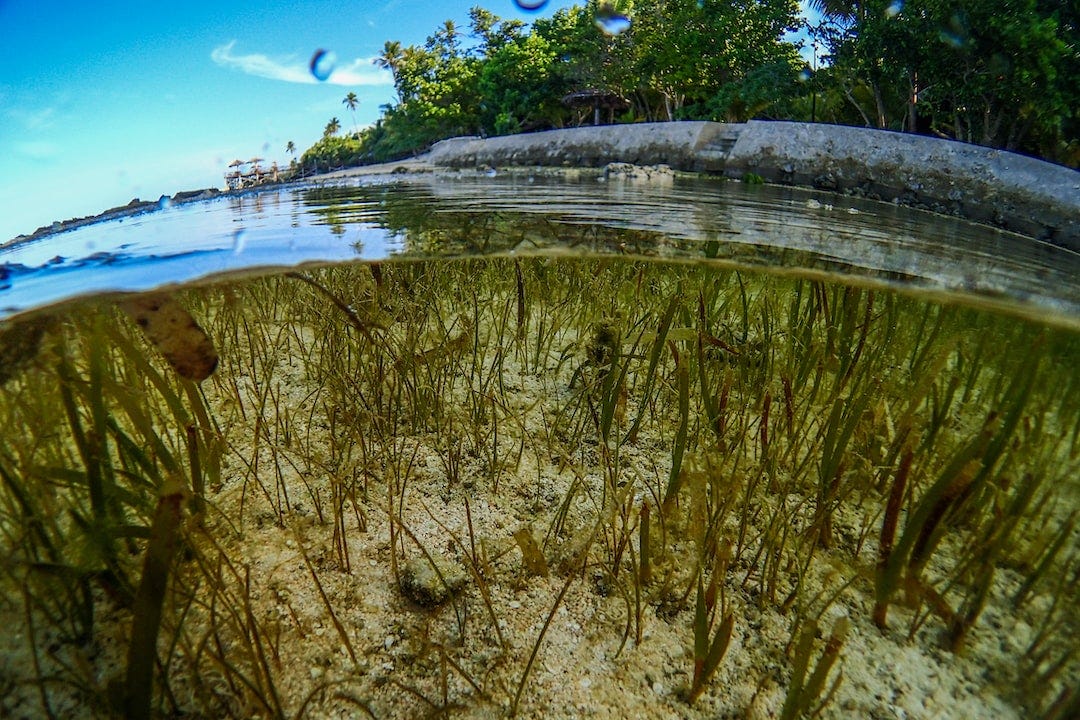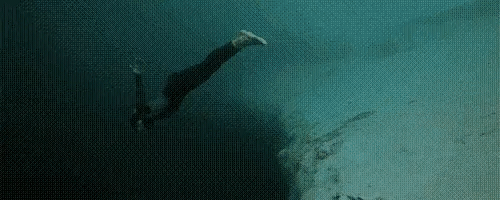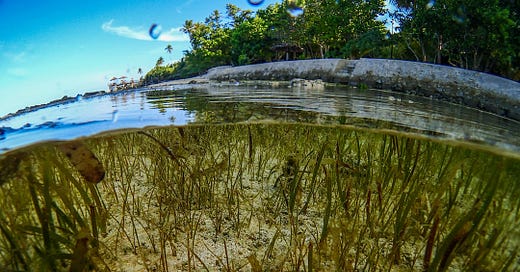Who Needs More to Read?

The IPCC is the UN's Intergovernmental Panel on Climate Change.
This group was created to give policy makers regular updates on the latest in climate science, impact, and mitigation.
There are three working groups within the IPCC.
Working Group I is focused on the physical science of climate change.
Working Group II assesses the impact on everything from ecosystems and biodiversity to humans and their activities.
Working Group III its focused on mediation - including understanding the sources of emissions and following up on various efforts and pledges to reduce emissions.
The 2022 IPCC report is the sixth assessment on the state of climate change.
Quick soundbites and tweetstorms immediately followed the release of this much-anticipated report earlier this month, but those few people (or teams of people) who actually read the whole thing are beginning to offer more informed and nuanced summary.
I assure you, I am not one of these people.
IPCC Summary - The Short, The Medium, The Long
As you can imagine, while all the research and science is absolutely the critical foundation of our knowledge of climate change, the Working Group III mitigation report gets a lot of attention.
The Short
If you're a Twitter-thread-summary kind of person this one's for you:

The Medium
In this article, Drilled News takes a look at just one section of the IPCC report - Chapter 5 on energy demand.
First off, I think it is worth recognizing that each segment of this report can, and needs to be, analyzed individually.
The soundbites just don’t do it justice.
This analysis takes a look at the idea of whether economic growth and increased demand for energy are actually as intrinsically connected as most people think.
It also explains why the IPCC ‘Summary for Policymakers’ is an ineffective place to start (spoiler alert: the politicians got involved).
“for the report's Summary for Policymakers, or SPM (you can read more about that here). That meant that reporters got zero time with the actual report before we had to write about it, which was particularly problematic because some government representatives involved in the SPM process succeeded in watering it down so much it reads like the summary of an entirely different report. Plenty of reporters will only read the SPM; if they do, they'll miss the importance of this report.”
+Debunking demand, an ode to Chapter 5 (IPCC mitigation report, part I) - Drilled
The Long
This article is for the long-form readers in the group, but others shouldn’t be scared off.
It is extremely well organized and skimmable, with links that will take you right from the Q&A items that catch your interest to segments within the article with the answers.
There's a ton of information in here for those new to this report, as well as the more informed.
It includes brief-ish answers on what is the working group report, how have global emissions been changing, how can industry be decarbonized, what kind of policies are being implemented and are they working, etc.
Plus so much more.
If you’re looking to get an education on this topic, but not a 3000 page kind of education, this is the resource for you.
+In-depth Q&A: The IPCC sixth assessment on how to tackle climate change - CarbonBrief.org
The Very Long
Don’t trust other people’s summaries?
You are a skeptical bunch, aren’t you.
Here’s where to find the entire report.
The short version is known as the Summary for Policymakers it comes in at about 65 pages (see note above on this).
The medium is the Technical Summary at about 165 pages (recommended, can focus on areas of interest, personally working on this).
And the long, complete version is 3000 pages (oof).
Oh, and that’s just the Working Group III segment.
Mitigating Climate Change with Our Oceans
This newsletter has been highlighting where blue economy solutions fit into climate change mitigation.
Here are some more resources that jumped out at me this week.

Manuel Carmona Yebra @CarmonaYebra

This paper highlights that lack of awareness about the contribution of seagrass to ocean health (and economic health).
Seagrass’s propensity to grow in shallow water where humans also hang out makes it a prime target for mitigating climate change.
Seagrasses support an estimated 20%of the world’s biggest fisheries, including walleye pollock, the planet’s most-caught species. In the Mediterranean alone, seagrasses contribute at least €200 million ($218 million) to both commercial and recreational fisheries annually. The loss of seagrass habitat is linked to rapid declines in fish stocks and subsequent economic losses.
Let’s get the word out!
+What to know about seagrass, the oceans overlooked powerhouse - WRI.org
Decarbonizing food
Shifting diets away from terrestrial foods and towards seafood, a key strategy for mitigating climate change, means investing in both wild catch and aquaculture-based fisheries.
“Electricity and transportation will eventually be 100% renewable, but there is no way to replace food—it will always have costs.”
+New paper explains the role of seafood in sustainable diets - Sustainable Fisheries
Mitigation in Power and Infrastructure
This short article posted on Linkedin by Austrian copper company Montanwerke Brixlegg is clearly a marketing piece where they interview their own COO.
However, copper is critical to the electrification of everything.
I thought it was interesting in light of last week’s newsletter on efficiency to find a company is focused on offering recycled copper to the marketplace and that their manufacturing facilities are 100% powered by local hydroelectric power.
+A wholistic view on sustainability is much needed - LinkedIn
And while we tend to focus on not having enough renewable energy in the mix, there are milestones worth celebrating.
+In a first, wind power is second-leading us source of electricity in one day - Yahoo News
+Renewable energy provided 24% of US electricity in December - CleanTechnica
Mitigation, or Not, in Web3
We've mentioned Toucan Protocol in this newsletter before.
While not an ocean-based solution per se, tokenized carbon credits combined with blue carbon projects has the power to be a huge force in future climate mitigation.
“Blue carbon ecosystems (BCEs), including mangrove forests, seagrass meadows and tidal marshes, store carbon and provide co-benefits such as coastal protection and fisheries enhancement. Blue carbon sequestration has therefore been suggested as a natural climate solution.”
+Blue carbon as a natural climate solution - Nature.org
Toucan is tokenizing carbon credits so that they are accessible to web3 applications looking to connect their communities with carbon credits.
The thing is, not all carbon credits are not created equal.
+Toucan’s huge crypto effort to end useless carbon offsets is backfiring - Bloomberg
This article shouldn't be seen as old-economy grumpiness versus ‘you just don’t get it, man’ new economy.
The wonks at Nori, another web3 group active in climate mitigation, have also pointed out this issue with the particular credits Toucan is tokenizing.
Here's a podcast where this issue of the difference between different carbon credits is discussed:
We need to get this right to have legitimacy in the markets. There’s still a lot of work to be done.
What, you want more to read?
I know this is a community of curious readers, but enough is enough!
Ok, you asked for it…
In a world of ‘Top 10’ lists, Reuters energy analyst John Kemp drops this - his favorite 1,100 books and articles on energy!

RECOMMENDED READING - the energy-related books and articles I have found most useful in my own research: tmsnrt.rs/3udjk23

The list is very well organized and I found it super interesting just to cruise the titles.
You can easily find the sections and topics that are most relevant to you.
What a resource!
Going, Going, Gone…

At around 20 meters underwater, gravity overtakes the buoyancy of your body and you start falling towards the ocean's floor: it's the physics of the freefall in freediving [read more: bit.ly/2C2vxsA]

I’ve felt a little like this guy since I started this newsletter.
This week’s issue in particular has highlighted just how little I know about the challenges facing the planet, our oceans, and changing the systems that affect them.
So curl up with the dog, a cup of strong coffee, and get reading!
Doug




